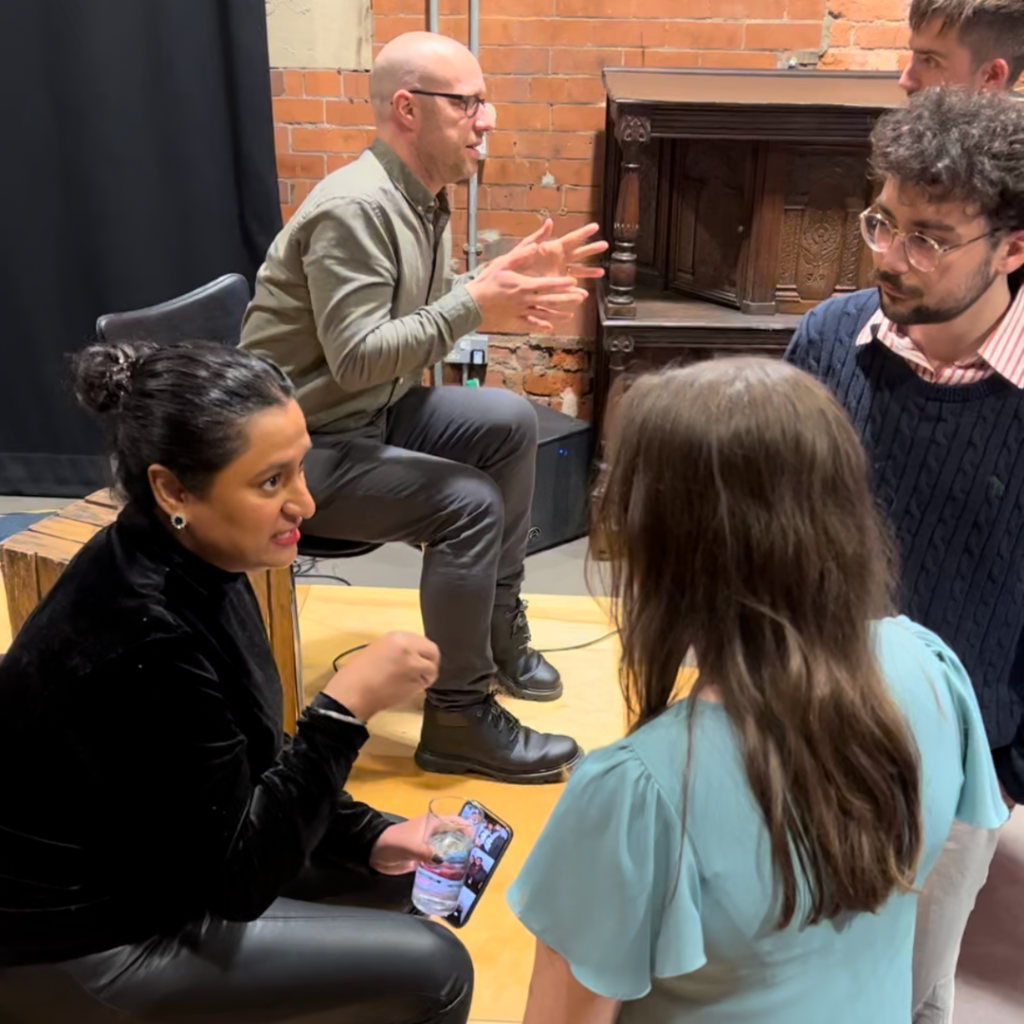This year’s third JournoFest panel focussed on ‘The art of investigative journalism’, including the skills needed to succeed as an investigative journalist and a behind-the-scenes look at the field.
Our trainees heard from The Sunday Times northern editor David Collins, The i investigations editor Dean Kirby and BBC journalist Perisha Kudhail.
Here News Associates part-time trainee Sam Lake shares what he learnt.
Our host Graham Dudman asked the panellists what they thought the biggest myths were about investigative journalism. What emerged was an image of a profession much slower-paced than movies portray.
Dean, whose work includes investigations into PPE supply chains during the Covid-19 pandemic and some fascinating open-source work on the war in Ukraine, told trainees that contrary to what the movies depict, the work of investigative journalists often goes on long after the initial story has broken.
That was evidenced by David’s ongoing coverage of the murder of Agnes Wanjiru, a Kenyan woman allegedly killed by a British soldier in Nairobi in 2012, with the most recent update on the case published the day after JournoFest in The Sunday Times.
More developments on our long-running investigation into the murder of a Kenyan woman in Nanyuki in 2012. Agnes Wanjiru murder: charges loom for British soldiershttps://t.co/HYnVJLem39
— David Collins (@DavidCollinsST) November 19, 2023
David talked us through some of the legal challenges involved in such a case. He explained the key reason the paper’s suspect has never been named is due to defamation.
David said: “The key question to ask oneself is ‘can you defend what you print in court?’” Our panellists all agreed that to be an investigative journalist, you need to be open to learning new skills.
Perisha added that patience and persistence are crucial in pursuing long and often complex investigative trails. One trainee asked: “How do you get the most out of your sources?”
David told us that the most crucial skill was simply being ‘a decent person’.
He said: “Be a good person and not what you think a journalist should be.” Perisha told us that while getting too emotionally involved in cases is not advisable, it certainly helps to have some emotional investment and empathy with those involved.

Our trainees networking with Perisha and David
Our panellists emphasised that the most important attribute to have when getting started in the world of journalism is to be pushy and to look for every opportunity to get involved.
David told us to prevent burnout, it is just as important we develop a skill he is yet to master: the art of saying no. You can read all the highlights and top tips from JournoFest 2017, 2018, 2019, 2020, 2021, 2022 and 2023 here.

